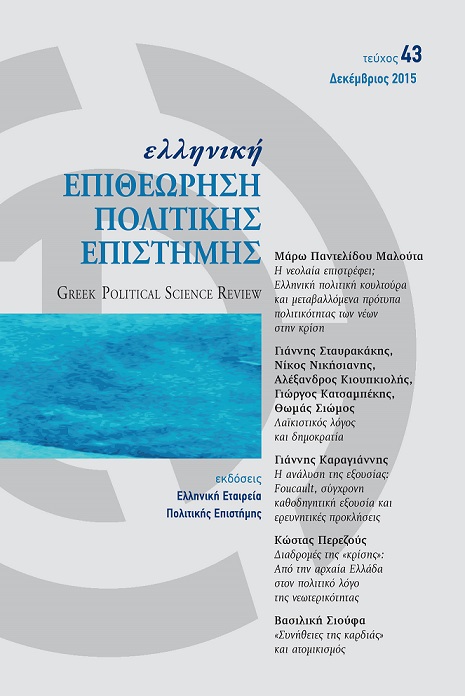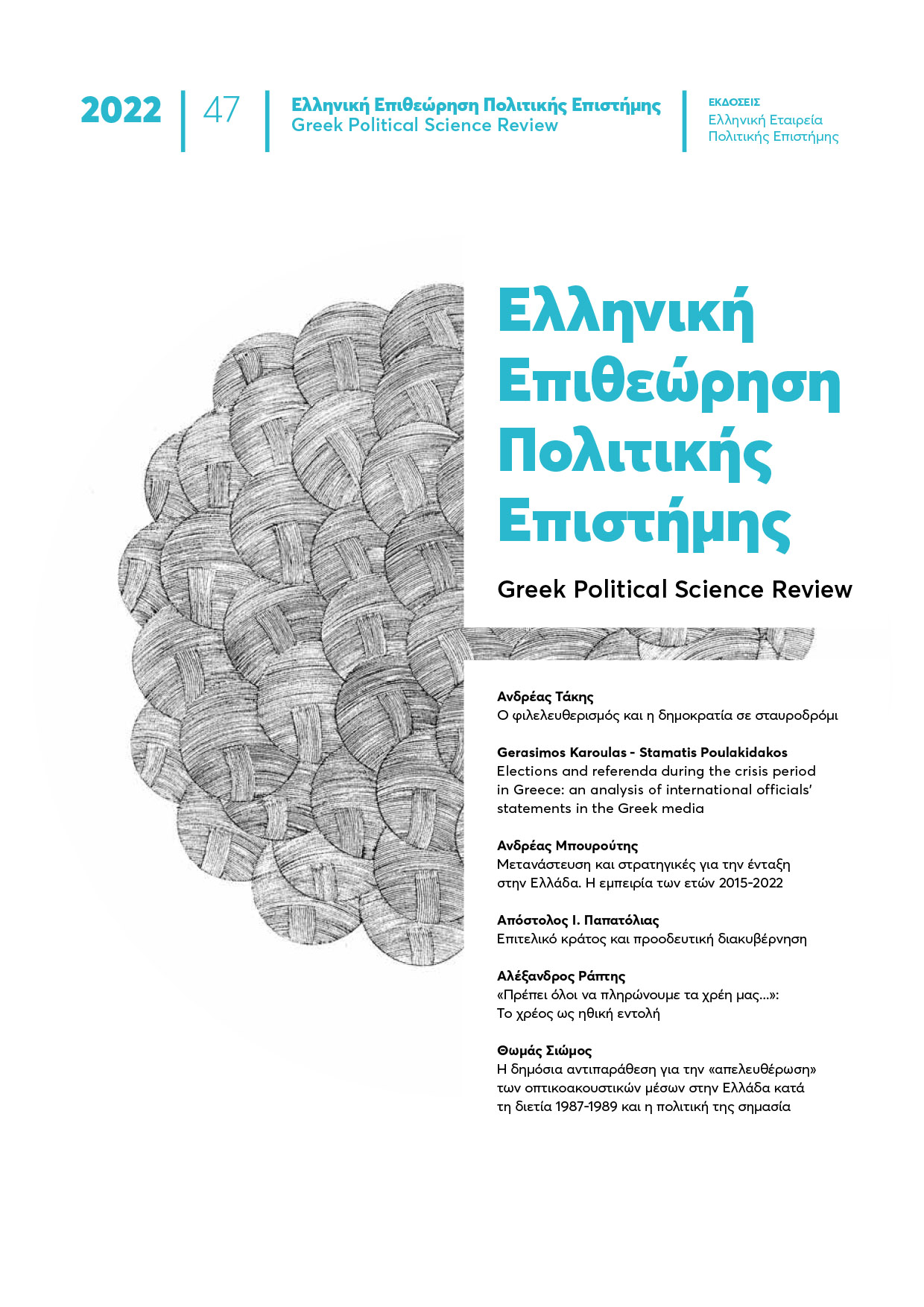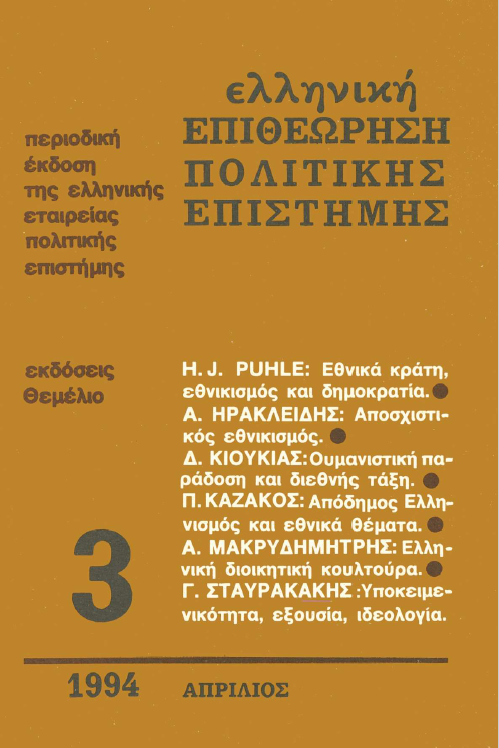Populistic discourse and democracy
Abstract
Populism constitutes one of the most topical issues in contemporary political research. However, the heterogeneity of the forms it takes on a global scale – increasingly so in the European context – highlight the need for a renewal in its social-scientific exploration. Within the context of our research, we have purported to develop a rigorous yet flexible theoretical framework for the identification and comparative analysis of populist phenomena. From a methodological point of view, this process was based on discourse analysis, especially the Essex School, which was also enriched by a number of other qualitative, quantitative and lexicometric methods. Our empirical analysis focused on: (1) Contemporary left-wing populism in Latin America; (2) Extreme right-wing populism in Europe; (3) The populism/anti-populism antithesis in conditions of crisis. This paper summarizes the research conducted, emphasizing its main conclusions.
Article Details
- How to Cite
-
Σταυρακάκης Γ., Νικήσιανης Ν., Κιουπκιολής Α., Κατσαμπέκης Γ., & Σιώμος Θ. (2017). Populistic discourse and democracy. Greek Political Science Review, 43, 47–78. https://doi.org/10.12681/hpsa.14405
- Issue
- Vol. 43 (2015)
- Section
- Articles

This work is licensed under a Creative Commons Attribution-NonCommercial-ShareAlike 4.0 International License.
Authors who publish with this journal agree to the following terms:
Authors retain copyright and grant the journal right of first publication with the work simultaneously licensed under a Creative Commons Attribution licence that allows others to share the work with an acknowledgement of the work's authorship and initial publication in this journal.
Authors are able to enter into separate, additional contractual arrangements for the non-exclusive distribution of the journal's published version of the work (e.g. post it to an institutional repository or publish it in a book), with an acknowledgement of its initial publication in this journal.
Authors are permitted and encouraged to post their work online (preferably in institutional repositories or on their website) prior to and during the submission process, as it can lead to productive exchanges, as well as earlier and greater citation of published work (See The Effect of Open Access).






